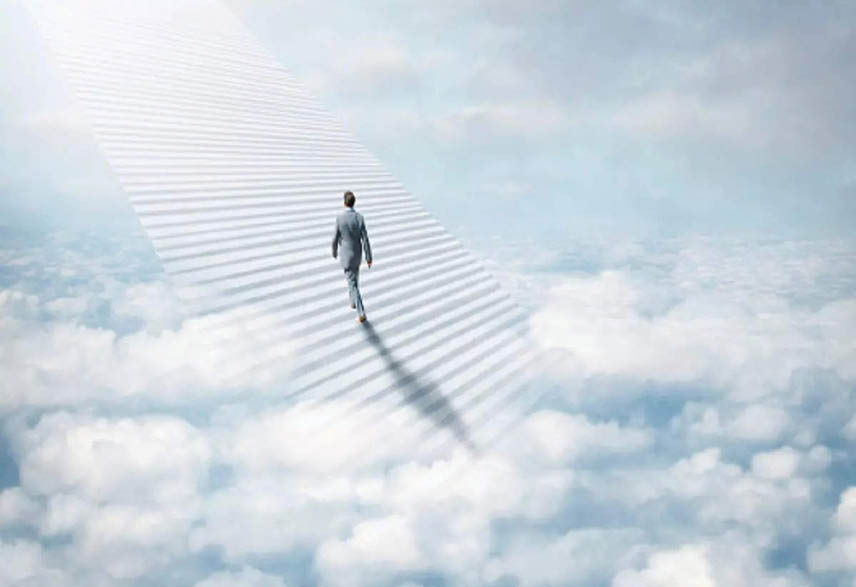In keeping with readers writing in questions seeking answers to their various religious and cultural queries, scholar in Zoroastrian religion and culture – Noshir Dadrawala, responds…
Query from Parsi Times reader, Jal K. Patel: Having lost a dear one overseas, I was very disturbed. I therefore contacted a friend who is very religious and asked him what I could pray for my own solace and the peace of my dear departed one. The answer I received from him left me even more disturbed. He said that burial and cremation are both a grave sin, according to our religion and unless the corpse is laid to rest at a dokhma, the soul would suffer untold hardship and will not even reach ‘chinvat’ bridge. He categorically said that in the afterlife, the souls of all those who are buried or cremated suffer “severe regressive effects.” I am keen to know what our scriptures say in this regard?
Noshir Dadrawala responds: To begin with, heartfelt condolences and may Ahura Mazda bestow you with strength and courage to overcome the grief and come to terms with your loss. In our opinion, your so called “very religious friend” should have exercised discretion and responded to your query with more sensitivity.
What We Can Pray For Our Dearly Departed…
With regard to what you could pray for your dear departed one; traditionally, we pray the Patet Ravani (prayer for atonement of the soul of the dead) during the first three days after death. Thereafter, on the fourth day (charum), tenth day (dasmu), thirtieth day every month (siroj), sixth month (chamsi) and first death anniversary (varsi) after death, the satum (stum) and Fravardin Yasht can be prayed or Farokshi, which is a blend of Fravardin Yasht and the Stum no Kardo. You may also perform acts of charity in the name of the deceased loved one.
What The Scriptures Say…
According to the Vendidad, Spenta Armaity – the Spirit of earth, is displeased and feels tormented when corpses of human beings, as also dogs, are buried. What the Vendidad means is burying a dead, decaying corpse pollutes the earth. However, nowhere does the Vendidad state that the soul of one who is buried would suffer “severe regressive effects.”
It is the same with cremation, whether with wood, gas or electricity. Fire is the source of light, life, and a channel through which Zoroastrians worship Ahura Mazda. What we traditionally offer to fire is fragrant wood and not a decaying, putrefying corpse. Besides, fumes from a burning corpse pollutes the air.
Thus, dokhmenashini remains an eco-friendly system for the disposal of the dead. However, this facility is available only in India and Pakistan. In India, too there are several states where this facility is no longer available. Does this mean the souls of those who are cremated or buried where such facility is not available suffer severe regressive effects?
Unfortunately, some of our religious zealots speak as if they have a hotline with the Divinities guarding ‘chinvat pool’ (bridge of the separator) and can personally monitor and evaluate the plight of the soul through unseen surveillance cameras.
Not for even a moment are we advocating burial or cremation over Dokmenashini. However, it is also a fact that there is not a single Zoroastrian scripture which says that unless the dead body is consigned to the Dokhma, there will be “severe regressive effects on the progress of the soul in the afterlife.” There is not even a shred of evidence in support of this fallacy.
How The Soul Is Judged?
According to Zoroastrian theology, on the dawn of fourth day after death (Chaahrum), the Urvan (soul, spirit or the spiritual essence) stands before a Divine Tribunal of Meher, Rashne and Ashtad Yazad who balance all the actions of the soul during its entire life and if good actions outweigh the bad, the soul is allowed to cross the Chinvat Bridge to Garothmaan or Garo Demaana – the House of songs.
This means Meher, who is doctrinally seen as Davar or Judge, along with Rashne who is Raast or Righteous Judge, and Ashtad as the embodiment of Truth – they judge the soul’s balance sheet of deeds. Thus, standing before the Divine Tribunal could also be interpreted as the soul being able to see its deeds in the presence of Meher (Divine Light), with Ashtad (Truth) and Rashne (to righteously judge its own actions throughout life on earth).
In other words, the soul judges its own deeds and finds itself in a happy state of consciousness (House of Song) or a reflective state of consciousness. In our opinion, the soul is not judged based on how its mortal coil is disposed on earth. It is judged based on its deeds while on earth.
|
Do you have religious or cultural queries that you seek answers to? Mail in your questions to us at: editor@parsi-times.com |
- Celebrating The Interplay Of Life And Fire! - 20 April2024
- Customs To Observe At Atash Behram Or Agyari - 13 April2024
- A Shower Of Spring Festivals - 6 April2024
